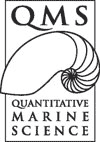
Dr Stephy Libera
What did you like best about the program?
- Connecting people: It was nice to meet researchers and PhD students doing research on different topics that you otherwise don’t see or interact with much. For example, I have met students from IMAS Taroona and Launceston during some of the coursework, stayed friends with some, and exchanged information about some of the science events in Hobart (Beaker Street Festival, BeerAquatic, etc). Through the QMS course, I got to meet the CMS (Centre for Marine Sociology) team, and attend many events and do outreach in Schools in Tasmania with the CMS.
- Refreshment of the background science: At IMAS there are a lot of international students and many of us study the same degree from different parts of the world, so having a refresher on the course (in my case, physical oceanography) from UTAS along with my peers was helpful to get a similar baseline for everyone.
- Developing a holistic view of the Marine-Antarctic Science: Again at IMAS, there are many strong branches of Marine-Antarctic research that happens and if many of us (PhD students) only get to attend seminars and talks, we may not get a good understanding of the background of some of these disciplines. Or we may skip seminars that are not directly relevant o our PhD topic. But the Antarctic climate system is not stand-alone and many of the subjects we study are highly interactive, so going to many of the QMS lectures, where some the complexities of the marine-Antarctic system were discussed was very helpful to build a more open or wider view of the system, than being too narrow and focused only on your niche of PhD research.
- Building skills, identifying support and potential collaborators: Some of the coursework (like QMS510 - Data Analysis Methods, QMS515 - Techniques in Remote Sensing, and QMS510 - Introduction to Quantitative Marine Science) are designed to help PhD students develop skills in using certain programming tools/ languages or data assessment softwares. These courses helps to both gain an introduction, as well as identify people in the institute that can help you or collaborate with you in your research if you were to use these methodologies.
How has it helped you in your current career?
Attending the QMS courses has helped me gather a more holistic view of the Antarctic marine and climate system. It helped me to initiate good discussions when I was a tutor for KSA102 in 2022 with the students about a range of topics that I may not have been able to do otherwise. It also gave me interest and confidence to apply for interdisciplinary postdoc positions. I do wish to teach in the future and I believe the QMS program will help me with both the knowledge and ideas on how to convey certain concepts to students (e.g., activities, projects, hands-on exercises, etc). It also helps me to communicate polar and marine science with a wide range of audiences and is very useful for science outreach.
What was your favourite unit and why?
I have enjoyed almost all units that I attended from QMS, to pick one as a favourite is hard, but if I have to pick, I will go for QMS514 - Structure and Function of Marine and Antarctic Ecosystems.
I loved learning a lot of concepts about species interactions and the dependency of many species on the environment and on each other. One of my favourite experiences was at the end of the coursework, we all went to the Princess Park rather than in a meeting room where we had open discussion. We were encouraged to have a very open discussion on many possibilities of impact on marine ecosystems, and this was nice to bring many of us with various specialisations to think of processes or situations that link to marine ecosystems.
What is your current role?
I am currently in a Postdoctoral position at the Université Catholique de Louvain, Belgium. I am researching the impact of mesoscale eddy processes on sea ice and ocean in the Arctic and Antarctic.
